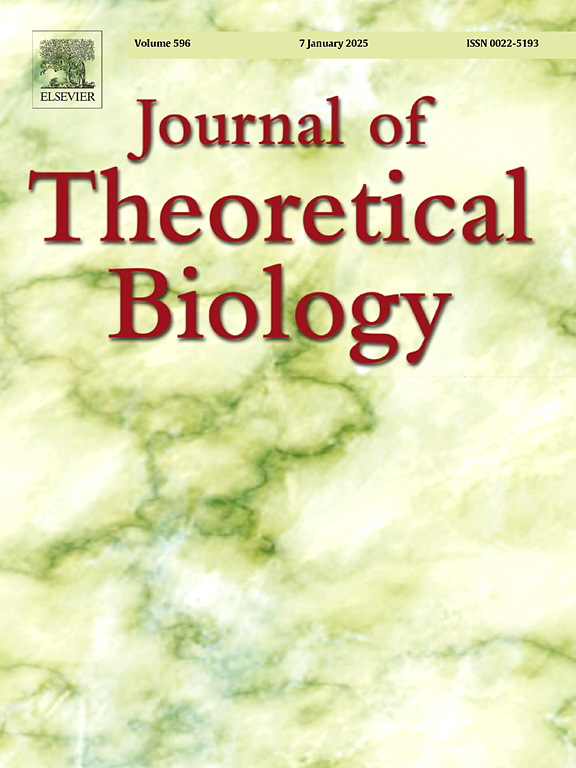Developing cholera outbreak forecasting through qualitative dynamics: Insights into Malawi case study
IF 2
4区 数学
Q2 BIOLOGY
引用次数: 0
Abstract
Cholera, an acute diarrheal disease, is a serious concern in developing and underdeveloped areas. A qualitative understanding of cholera epidemics aims to foresee transmission patterns based on reported data and mechanistic models. The mechanistic model is a crucial tool for capturing the dynamics of disease transmission and population spread. However, using real-time cholera cases is essential for forecasting the transmission trend. This prospective study seeks to furnish insights into transmission trends through qualitative dynamics followed by machine learning-based forecasting. The Monte Carlo Markov Chain approach is employed to calibrate the proposed mechanistic model. We identify critical parameters that illustrate the disease’s dynamics using partial rank correlation coefficient-based sensitivity analysis. The basic reproduction number as a crucial threshold measures asymptotic dynamics. Furthermore, forward bifurcation directs the stability of the infection state, and Hopf bifurcation suggests that trends in transmission may become unpredictable as societal disinfection rates rise. Further, we develop epidemic-informed machine learning models by incorporating mechanistic cholera dynamics into autoregressive integrated moving averages and autoregressive neural networks. We forecast short-term future cholera cases in Malawi by implementing the proposed epidemic-informed machine learning models to support this. We assert that integrating temporal dynamics into the machine learning models can enhance the capabilities of cholera forecasting models. The execution of this mechanism can significantly influence future trends in cholera transmission. This evolving approach can also be beneficial for policymakers to interpret and respond to potential disease systems. Moreover, our methodology is replicable and adaptable, encouraging future research on disease dynamics.
通过定性动态发展霍乱爆发预测:对马拉维案例研究的见解。
霍乱是一种急性腹泻疾病,是发展中地区和欠发达地区的一个严重问题。对霍乱流行的定性理解旨在根据报告的数据和机制模型预测传播模式。机制模型是捕捉疾病传播和人口扩散动态的关键工具。然而,使用实时霍乱病例对预测传播趋势至关重要。这项前瞻性研究旨在通过定性动力学和基于机器学习的预测来提供对传输趋势的见解。采用蒙特卡洛马尔可夫链方法对提出的机制模型进行了标定。我们使用基于部分秩相关系数的敏感性分析来确定说明疾病动态的关键参数。基本再现数作为衡量渐近动力学的关键阈值。此外,正向分岔指导感染状态的稳定性,Hopf分岔表明,随着社会消毒率的上升,传播趋势可能变得不可预测。此外,我们通过将机械霍乱动力学纳入自回归综合移动平均线和自回归神经网络,开发了流行病信息机器学习模型。我们通过实施拟议的流行病信息机器学习模型来预测马拉维短期内的霍乱病例。我们断言,将时间动力学集成到机器学习模型中可以增强霍乱预测模型的能力。这一机制的实施可显著影响霍乱传播的未来趋势。这种不断发展的方法也有利于决策者解释和应对潜在的疾病系统。此外,我们的方法是可复制和适应性强的,鼓励未来对疾病动力学的研究。
本文章由计算机程序翻译,如有差异,请以英文原文为准。
求助全文
约1分钟内获得全文
求助全文
来源期刊
CiteScore
4.20
自引率
5.00%
发文量
218
审稿时长
51 days
期刊介绍:
The Journal of Theoretical Biology is the leading forum for theoretical perspectives that give insight into biological processes. It covers a very wide range of topics and is of interest to biologists in many areas of research, including:
• Brain and Neuroscience
• Cancer Growth and Treatment
• Cell Biology
• Developmental Biology
• Ecology
• Evolution
• Immunology,
• Infectious and non-infectious Diseases,
• Mathematical, Computational, Biophysical and Statistical Modeling
• Microbiology, Molecular Biology, and Biochemistry
• Networks and Complex Systems
• Physiology
• Pharmacodynamics
• Animal Behavior and Game Theory
Acceptable papers are those that bear significant importance on the biology per se being presented, and not on the mathematical analysis. Papers that include some data or experimental material bearing on theory will be considered, including those that contain comparative study, statistical data analysis, mathematical proof, computer simulations, experiments, field observations, or even philosophical arguments, which are all methods to support or reject theoretical ideas. However, there should be a concerted effort to make papers intelligible to biologists in the chosen field.

 求助内容:
求助内容: 应助结果提醒方式:
应助结果提醒方式:


